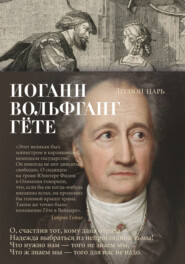По всем вопросам обращайтесь на: info@litportal.ru
(©) 2003-2024.
✖
Erotica Romana
Настройки чтения
Размер шрифта
Высота строк
Поля
For those ashamed of him Cupid reserves the bitterest passions,
Mingling for hypocrites their pleasure in vice and remorse.
But, at the same time, the goddess seeks him, she's watching and list'ning.
Should find him with you, ill disposed will she be:
Frighten you, frowning austerely, contemptuously, violently casting
Into the worst of repute houses he's known to frequent.
Ah, it's the same with me, too. I haven't escaped her, the goddess.
Jealously she seeks me out, sweet secret love to expose.
I will submit to the ancient law and in silence revere her,
For, when great lords fall out, I like the Greeks must atone.
XXIII
However comely be strength, or free and undaunted comportment,
Secrecy is for a man most important of all.
Mighty subduer of cities, Discretion, O princess of nations,
Goddess whom I adore, safely you've led me thus far.
Now, though, what fate shall befall me? My frivolous muse has now opened
– Cupid, the scamp – opens lips hitherto sealed so well.
Difficult is it, alas, to conceal the shame of a monarch;
Hide it can neither his crown, nor a tight Phrygian cap:
Midas has asses ears! the first servant discovers – O horror!
Shame of this secret so weighs, Midas unburdens his heart.
Into the earth for safekeeping the servant must bury the story,
Easing in this way the king: earth must conceal the tale.
Reeds in a trice are sprouting and rustling in murmuring breezes:
"Midas, o Midas the King – bears the ears of an ass!"
Mine is a secret more pleasant, but even more difficult keeping:
Out of abundance of heart eagerly speaketh my mouth.
None of my ladyfriends dare I confide in, for they would but chide me;
Nor any gentleman friend, lest he be rival to me.
Rapture proclaim to the grove, to the echoing cliffs perorate it?
One can do that if one's young, or if one's lonely enough.
I to hexameters tell, in pentameters I will confide it:
During the day she was joy, happiness all the night long.
Courted by so many suitors, avoided the snares that were set her
Now by one bolder than I, now by another in guile,
Cleverly, daintily, always slipped past them, and sure of the byways,
Comes to her lover's embrace, where he so eagerly waits.
Luna! Don't rise yet. She's coming, and must not be seen by the neighbor!
Breezes, rustle the leaves: muffle the sound of her feet.
And as for you, little poems, o grow and flower, your blossoms
Cradling themselves in the air, tepid and soft with love's breath.
Wafting, betray to Quirites, as Midas' reeds did with cheap gossip,
One happy couple in love, and their sweet secret, at last.
XXIV
I in the back of the garden, the last of the gods, in a corner,
Ineptly formed, must I stand. Evil the inroads of time.
Cucumber vines grow entwining about this primeval lingam,
Cracking it almost in two under the weight of the fruit.
Faggots are heaped all about me against the cold of the winter,
Which I so hate for the crows settling then down on my head,
Which they befoul very shamefully. Summer's no better: the servants
Empty their bowels and show insolent, naked behinds.
Filth, above and below! I was clearly in danger of turning
Into filth myself, toadstool, rotten wood!
Now, by your efforts, O noblest of artists, I shall recover
With fellow gods my just place. And it's no more than my due.
Jupiter's throne, so dishonestly won, it was I who secured it:
Color and ivory, marble and bronze, not to mention the poems.
Now, all intelligent men look upon me in kindness. They like to
Form their own image of me, just as the poet has done.
Nor do the girls take offense when they see me – by no means the matrons.
None finds me ugly today, though I am monstrously strong.
Half a foot long, as reward, your glorious rod (dear poet)
Proudly shall strut from your loins, when but your dearest commands,
Nor shall your member grow weary until you've enjoyed the full dozen
Artful positions the great poet Philainis describes.
ABOUT THE ELEGIES
Goethe cultivated a special, italianate hand for this portfolio of twenty-four "elegies," so called because he was emulating the elegiasts of Imperial Rome, Tibullus, Propertius, Catullus. The Elegies have never before been published as here, together in the cyclical form of their original conception. Experts even denied that the two priapeia (I & XXIV) were by Goethe at all, although they are in the same hand as the rest. To be sure, these two are not numbered, so that I was long undecided as to just what their proper position might be. At one time I imagined they must belong at the middle of the cycle where at the end of Elegy XIII Priapus' mother summons her son. Obviously Goethe, just returned north from his two years in Italy (1786-88), and alienated from prim, courtly friends (especially since he had taken a girlfriend into his cottage), had no thought of publication when he indited these remembrances of Ancient Rome. But he did show them to close friends, one of whom was the wonderful dramatist Friedrich Schiller. In 1795, Schiller undertook a new periodical, Die Horen. This thoughtful and responsible man initiated the journal with an essay of his own, explaining how forms of entertainment are actually at the same time our primary modes of education. It makes for pretty difficult reading in our present, less interested epoch. But he did break the essay up with diversions solicited from the best minds of his era. For a discussion of all this, see
Professor Worthy's Page
For now, it is enough to say that among Schiller's examples for "aesthetic education," as he called it, were these Elegies by his much admired friend, Wolfgang Goethe. Editor and author made substantial changes for propriety's sake – despite Goethe's having lashed out to the contrary in the first Elegy (which he now suppressed, along with the final one). My attempt has been – for the very first time by the way, in any language – to restore Goethe's cycle to his early conception. Since I have been unwilling to intrude with learned notes, I must apologize for Goethe's many classical allusions, which were as familiar to his own readership as are, in our publications today, the dense references to media celebrities. Modern editors of what they call the "Roman Elegies" bring abundant annotation, and often detail Goethe's own emendations. What I bring here is merely translated from his manuscript in the Goethe-Schiller Archive in Weimar.
Mingling for hypocrites their pleasure in vice and remorse.
But, at the same time, the goddess seeks him, she's watching and list'ning.
Should find him with you, ill disposed will she be:
Frighten you, frowning austerely, contemptuously, violently casting
Into the worst of repute houses he's known to frequent.
Ah, it's the same with me, too. I haven't escaped her, the goddess.
Jealously she seeks me out, sweet secret love to expose.
I will submit to the ancient law and in silence revere her,
For, when great lords fall out, I like the Greeks must atone.
XXIII
However comely be strength, or free and undaunted comportment,
Secrecy is for a man most important of all.
Mighty subduer of cities, Discretion, O princess of nations,
Goddess whom I adore, safely you've led me thus far.
Now, though, what fate shall befall me? My frivolous muse has now opened
– Cupid, the scamp – opens lips hitherto sealed so well.
Difficult is it, alas, to conceal the shame of a monarch;
Hide it can neither his crown, nor a tight Phrygian cap:
Midas has asses ears! the first servant discovers – O horror!
Shame of this secret so weighs, Midas unburdens his heart.
Into the earth for safekeeping the servant must bury the story,
Easing in this way the king: earth must conceal the tale.
Reeds in a trice are sprouting and rustling in murmuring breezes:
"Midas, o Midas the King – bears the ears of an ass!"
Mine is a secret more pleasant, but even more difficult keeping:
Out of abundance of heart eagerly speaketh my mouth.
None of my ladyfriends dare I confide in, for they would but chide me;
Nor any gentleman friend, lest he be rival to me.
Rapture proclaim to the grove, to the echoing cliffs perorate it?
One can do that if one's young, or if one's lonely enough.
I to hexameters tell, in pentameters I will confide it:
During the day she was joy, happiness all the night long.
Courted by so many suitors, avoided the snares that were set her
Now by one bolder than I, now by another in guile,
Cleverly, daintily, always slipped past them, and sure of the byways,
Comes to her lover's embrace, where he so eagerly waits.
Luna! Don't rise yet. She's coming, and must not be seen by the neighbor!
Breezes, rustle the leaves: muffle the sound of her feet.
And as for you, little poems, o grow and flower, your blossoms
Cradling themselves in the air, tepid and soft with love's breath.
Wafting, betray to Quirites, as Midas' reeds did with cheap gossip,
One happy couple in love, and their sweet secret, at last.
XXIV
I in the back of the garden, the last of the gods, in a corner,
Ineptly formed, must I stand. Evil the inroads of time.
Cucumber vines grow entwining about this primeval lingam,
Cracking it almost in two under the weight of the fruit.
Faggots are heaped all about me against the cold of the winter,
Which I so hate for the crows settling then down on my head,
Which they befoul very shamefully. Summer's no better: the servants
Empty their bowels and show insolent, naked behinds.
Filth, above and below! I was clearly in danger of turning
Into filth myself, toadstool, rotten wood!
Now, by your efforts, O noblest of artists, I shall recover
With fellow gods my just place. And it's no more than my due.
Jupiter's throne, so dishonestly won, it was I who secured it:
Color and ivory, marble and bronze, not to mention the poems.
Now, all intelligent men look upon me in kindness. They like to
Form their own image of me, just as the poet has done.
Nor do the girls take offense when they see me – by no means the matrons.
None finds me ugly today, though I am monstrously strong.
Half a foot long, as reward, your glorious rod (dear poet)
Proudly shall strut from your loins, when but your dearest commands,
Nor shall your member grow weary until you've enjoyed the full dozen
Artful positions the great poet Philainis describes.
ABOUT THE ELEGIES
Goethe cultivated a special, italianate hand for this portfolio of twenty-four "elegies," so called because he was emulating the elegiasts of Imperial Rome, Tibullus, Propertius, Catullus. The Elegies have never before been published as here, together in the cyclical form of their original conception. Experts even denied that the two priapeia (I & XXIV) were by Goethe at all, although they are in the same hand as the rest. To be sure, these two are not numbered, so that I was long undecided as to just what their proper position might be. At one time I imagined they must belong at the middle of the cycle where at the end of Elegy XIII Priapus' mother summons her son. Obviously Goethe, just returned north from his two years in Italy (1786-88), and alienated from prim, courtly friends (especially since he had taken a girlfriend into his cottage), had no thought of publication when he indited these remembrances of Ancient Rome. But he did show them to close friends, one of whom was the wonderful dramatist Friedrich Schiller. In 1795, Schiller undertook a new periodical, Die Horen. This thoughtful and responsible man initiated the journal with an essay of his own, explaining how forms of entertainment are actually at the same time our primary modes of education. It makes for pretty difficult reading in our present, less interested epoch. But he did break the essay up with diversions solicited from the best minds of his era. For a discussion of all this, see
Professor Worthy's Page
For now, it is enough to say that among Schiller's examples for "aesthetic education," as he called it, were these Elegies by his much admired friend, Wolfgang Goethe. Editor and author made substantial changes for propriety's sake – despite Goethe's having lashed out to the contrary in the first Elegy (which he now suppressed, along with the final one). My attempt has been – for the very first time by the way, in any language – to restore Goethe's cycle to his early conception. Since I have been unwilling to intrude with learned notes, I must apologize for Goethe's many classical allusions, which were as familiar to his own readership as are, in our publications today, the dense references to media celebrities. Modern editors of what they call the "Roman Elegies" bring abundant annotation, and often detail Goethe's own emendations. What I bring here is merely translated from his manuscript in the Goethe-Schiller Archive in Weimar.

















